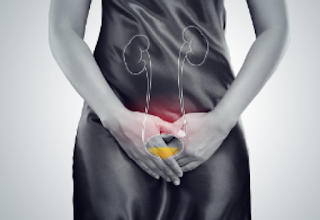Menstruation is an important event in the life of a girl, and girls face problems because they do not know much about it. So they have to have a good idea about the symptoms of menstruation or period, what to do if the period is irregular, the reasons for irregular period etc. Here we are “What is the menstrual cycle or period of girls? What is normal menstruation? ” I will discuss in detail.
Usually a girl starts her menstrual cycle when she is an adult, menstruating for a certain number of days in a row.
This is called period because of the periodic menstruation or bleeding in the body of girls.
What is normal menstruation?
When
women have a normal menstrual cycle, they shed their uterine lining. This
chakra is part of the female reproductive system and prepares the female body
for possible pregnancy. It is also called period, menses or cycle.
Normal
period means regular menstruation every month. If a woman menstruates on a
certain day of each month, her period is a normal menstruation. Here we are discussing in detail about normal discharge in
girls.
What is menstruation?
Menstruation
is the monthly discharge of the lining of a woman's uterus (commonly known as
the womb). Menstruation is also known as menses, menses, cycles or periods.
Menstrual
blood is part blood and part tissue from inside a woman's uterus. It flows from
a woman's uterus through her uterus and through her vagina out of her body.
What is the normal menstrual cycle for girls?
The
menstrual cycle is a term used to describe the sequence of events that take
place in a girl's body for the possibility of conceiving each month. A
menstrual cycle is considered to begin on the first day of a period.
However,
the average cycle is 28 days long; The length of a cycle can range from 21 days
to about 35 days.
The
stages of the menstrual cycle are triggered by the rise and fall of chemical
called hormones in a woman's body.
The
body's pituitary gland (brain) and the female ovary (reproductive tract)
produce and secrete certain hormones at certain times during a woman's
menstrual cycle that respond to the organs of the female reproductive tract in
certain ways.
Specific
events that occur during a woman's menstrual cycle can also be described as
follows:
Menstrual stage:
This
stage, which usually lasts from three to five days, is the time when the lining
of the uterus comes out of a woman's vagina when she is not pregnant.
In terms
of menstruation, most women have periods or bleeding for three to five days. However,
some women may last only two to seven days. At present it is also considered as
normal menstruation.
Follicular stage:
This
stage usually occurs in 6 to 14 days. During this time, levels of the hormone
estrogen increase, causing the uterine lining (called the endometrium) in women
to increase and thicken.
Also,
another hormone, follicle-stimulating hormone, increases the follicles in a
woman’s ovaries. In 10 to 14 days, one of the developing follicles will form a
fully mature egg (ovum).
Ovulation:
This
phase of menstruation occurs on about day 14 of a 28-day menstrual cycle.
Another
hormone - luteinizing hormone - causes a woman's ovaries to secrete her eggs
due to a sudden increase in the body.
This
process is called ovulation.
The Luteal Stage:
This
period of menstruation lasts from about 15 to 28 days. After the ovum comes out
of the female's ovary, it begins to pass through the woman's fallopian tubes
into her uterus.
In
women, the hormone increases progesterone levels to help prepare the uterine
lining for pregnancy.
If the
ovum is fertilized by a sperm and attaches itself to the uterine wall of the
woman, the woman will become pregnant.
When
pregnancy does not occur, estrogen and progesterone levels decrease and during
menstruation, the thick lining of a woman's uterus sheds into the vagina.
At what age do girls usually start menstruating?
On
average, girls usually start menstruating at the age of 12. However, some girls
may start menstruating as early as age 8 or as late as age 16.
Women
stop menstruating during menopause, which occurs around the age of 51.
Menopause
is defined as one year without a period and women can no longer become pregnant
after this period.
Symptoms of normal menstruation
In
normal menstruation, some sub paradises are seen in the body of women. For
example-
- the mood
- sleep problems
- Appetite for food.
- Cramps in abdomen and back.
- swollen
- Breast tenderness.
- Acne.
What symptoms of menstruation in the body of a woman should consult a doctor?
There
are some symptoms of menstruation, which when indicated indicate the need to
contact a doctor about menstruation.
So, if a
girl shows the following symptoms in her body, she should contact a doctor or
health care provider.
Reasons to consult a doctor during periods
- If the girl is 16 years old, she has not started menstruating yet.
- A girl's period stops suddenly.
- If bleeding lasts longer than usual during menstruation.
- If you bleed more than usual.
- If you have severe pain during period.
- If bleeding during the period.
- If someone suddenly feels sick after using a tampon, they should consult a doctor.
- If a woman thinks she is pregnant - for example, a girl has had intercourse and her period is at least five days late.
- No one's period comes back within three months after stopping the birth control pill and if she knows she is not pregnant.
- If you have any questions or concerns about your period or possible pregnancy, you should contact your doctor.



একটি মন্তব্য পোস্ট করুন